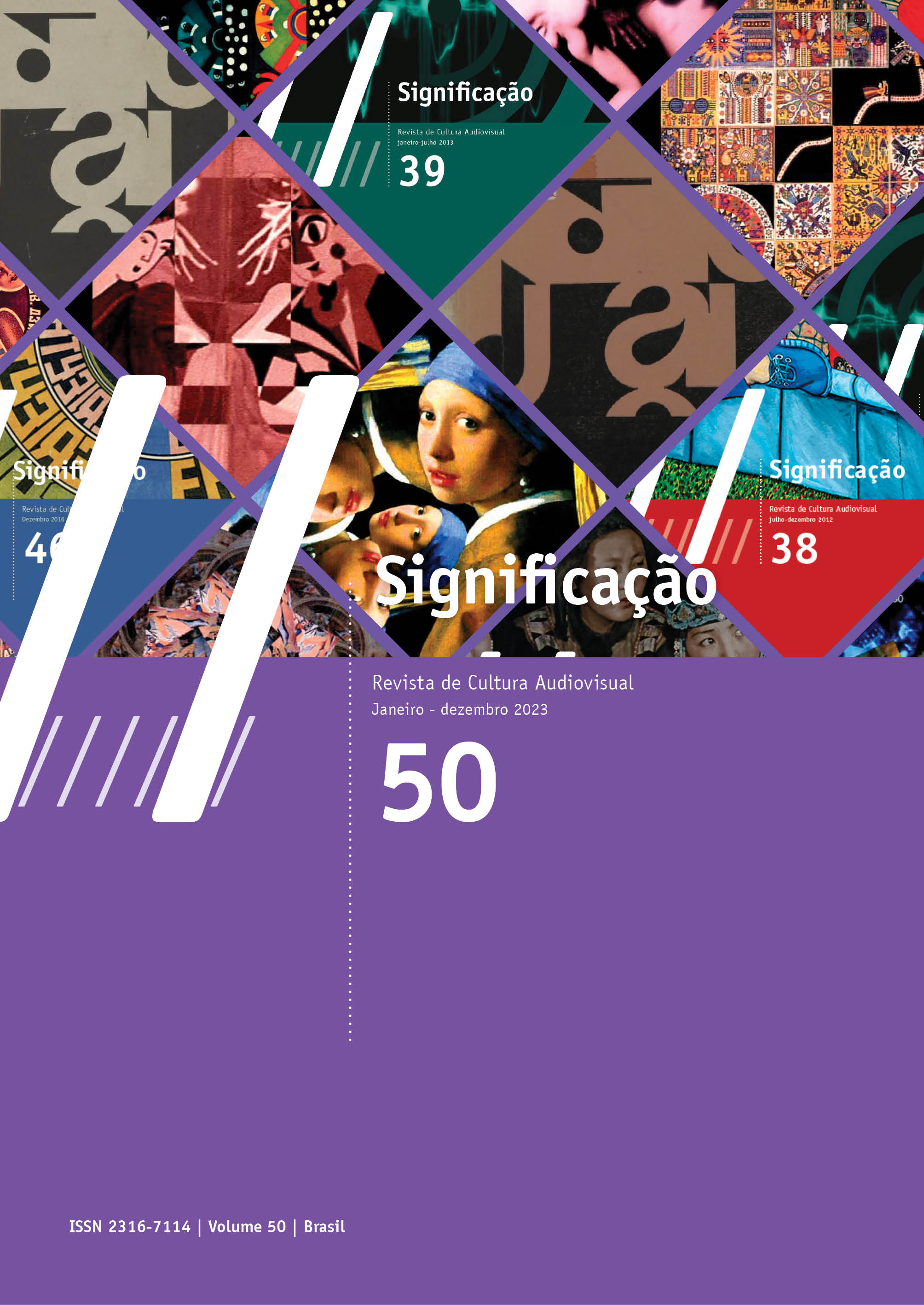The cinema of Rithy Panh: everything has a soul
DOI:
https://doi.org/10.11606/issn.2316-7114.sig.2022.205374Palabras clave:
Cambodia, Rithy Panh, Documentary, Genocide, ExileResumen
Over four decades of making films, director Rithy Panh continues to expand the possibilities of documentary filmmaking. His traumatic experiences of the Khmer Rouge’s dehumanising regime drive the creative impulse that makes him Cambodia’s most famous director. This interdisciplinary collection elaborates upon the global geopolitical concerns such as migration, exile, imperialism, and gender that Panh astutely implicates within the specificities of Cambodian history. Not only does Panh expose the role cinema plays in reifying structures of oppression, he also shows how it might also produce a measure of redemption.
Descargas
Referencias
BARNES, L.; MAI, J. The Cinema of Rithy Panh: Everything Has a Soul. New Brunswick: Rutgers University Press, 2021.
BENZAQUEN-GAUTIER, S; KLEINEN, J. “Archiving the Perpetrator”. In: BARNES, L.; MAI, J. (orgs.). The Cinema of Rithy Panh: Everything Has a Soul. New Brunswick: Rutgers University Press, 2021. p. 117-130.
CAZENAVE, J. “Rithy Panh as Chasseur d’images”. In: BARNES, L.; MAI, J. (orgs.). The Cinema of Rithy Panh: Everything Has a Soul. New Brunswick: Rutgers University Press, 2021. p. 72-85.
FRENCH, L. “Looking Back and Projecting Forward from Site 2”. In: BARNES, L.; MAI, J. (orgs.). The Cinema of Rithy Panh: Everything Has a Soul. New Brunswick: Rutgers University Press, 2021. p. 161-172.
LAROCCA, D. “Memory Translation: Rithy Panh’s Provocations to the Primacy and Virtues of the Documentary Sound/Image Index”. In: BARNES, L.; MAI, J. (orgs.). The Cinema of Rithy Panh: Everything Has a Soul. New Brunswick: Rutgers University Press, 2021. p. 188-201.
LY, B. “The “Mad Mother” in Rithy Panh’s Films”. In: BARNES, L.; MAI, J. (orgs.). The Cinema of Rithy Panh: Everything Has a Soul. New Brunswick: Rutgers University Press, 2021. p. 17-31.
MAI, J. “Resilience in the Ruins: Artistic Practice in Rithy Panh’s The Burnt Theater”. In: BARNES, L.; MAI, J. (orgs.). The Cinema of Rithy Panh: Everything Has a Soul. New Brunswick: Rutgers University Press, 2021. p. 32-45.
MORAG, R. “Rithy Panh, Jean Améry, and the Paradigm of Moral Resentment”. In: BARNES, L.; MAI, J. (orgs.). The Cinema of Rithy Panh: Everything Has a Soul. New Brunswick: Rutgers University Press, 2021. p. 144-158.
PHAY, S. “Rithy Panh: Storyteller of the Extreme”. In: BARNES, L.; MAI, J. (orgs.). The Cinema of Rithy Panh: Everything Has a Soul. New Brunswick: Rutgers University Press, 2021. p. 202-214.
SÁNCHEZ-BIOSCA, V. “Bophana’s Image and Narrative: Tragedy, Accusatory Gaze, and Hidden Treasure” In: BARNES, L.; MAI, J. (orgs.). The Cinema of Rithy Panh: Everything Has a Soul. New Brunswick: Rutgers University Press, 2021. p. 173-187.
UM, K. The Wounds of Memory: Poetics, Pain, and Possibilities in Rithy Panh’s Exile and Que la barque se brise. In: BARNES, L.; MAI, J. (orgs.). The Cinema of Rithy Panh: Everything Has a Soul. New Brunswick: Rutgers University Press, 2021. p. 46-58.
Descargas
Publicado
Número
Sección
Licencia
Derechos de autor 2023 Andrew Philip

Esta obra está bajo una licencia internacional Creative Commons Atribución-NoComercial 4.0.
Autores que publicam nesta revista concordam com os seguintes termos:- Autores mantém os direitos autorais e concedem à revista o direito de primeira publicação, com o trabalho simultaneamente licenciado sob a Licença Creative Commons Attribution que permite o compartilhamento do trabalho com reconhecimento da autoria e publicação inicial nesta revista para fins não comerciais.
- Autores têm autorização para assumir contratos adicionais separadamente, para distribuição não-exclusiva da versão do trabalho publicada nesta revista (ex.: publicar em repositório institucional ou como capítulo de livro), com reconhecimento de autoria e publicação inicial nesta revista.
















